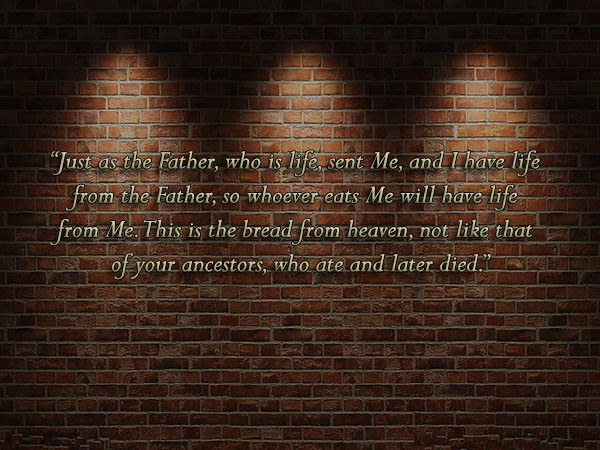Jn 20:11-18
Mary stood weeping outside the tomb; and as she wept, she bent down to look inside. She saw two angels in white, sitting where the body of Jesus had been, one at the head, and the other at the feet. They said, “Woman, why are you weeping?” She answered, “Because they have taken my Lord and I don’t know where they have put him.”
As she said this, she turned around and saw Jesus standing there, but she did not recognize him. Jesus said to her, “Woman, why are you weeping? Who are you looking for?” She thought it was the gardener and answered him, “Sir, if you have taken him away, tell me where you have put him, and I will go and take him away.”
Jesus said to her, “Mary!” She turned, and said to him, “Rabboni!”—which means Master. Jesus said to her, “Do not touch me, because I have not yet ascended to the Father. But go to my brothers and say to them: I am ascending to my Father, who is your Father, to my God, who is your God.”
So Mary of Magdala went and announced to the disciples, “I have seen the Lord, and this is what he said to me.”
REFLECTION
In today’s gospel reading two details cry out for comment.
First, the translation, “Do not touch me, because I have not yet ascended to the Father” is about as inept as a bad translation can ever be. The Greek text has mēhaptou: “do not” followed by an Imperative Present. Now in all the modes other than the Indicative, the normal tense used is the Aorist. When the Present tense is used, this suggests either intensity or duration, and so, the meaning of mēhaptou is clearly: do not keep holding on to me. This is followed by a “because” (gar) having what is called among experts in Greek “a delayed effect.” The meaning of the sentence thus becomes: “Stop holding on to me. True, (you may want to do so) because I have not yet ascended to my Father (and now, therefore, is the time for intimacy). But (instead of prolonging this intimacy, I have a mission for you), go to my brothers…”
The second detail needing comment is the simple fact that, as long as Mary is addressed as “Woman,” (a generic address valid for all women at the time of Jesus), she is in the dark. But when Jesus calls her by her name, her soul is flooded with light.
Each of us is called by name, for each of us is unique in God’s eyes. Do we believe this?
CLARETIAN COMMUNICATIONS FOUNDATION, INC.
8 Mayumi Street, U.P. Village, Diliman, 1101 Quezon City, Philippines
Tel.: (02) 921-3984 • 922-00-11 • 921-28-59 Fax: (02) 921-6205, 927-7429
Bookstore: (02) 924-6835
Email: ccfi@claretianpublications.com / cci@claret.org
Website: www.claretianpublications.com








